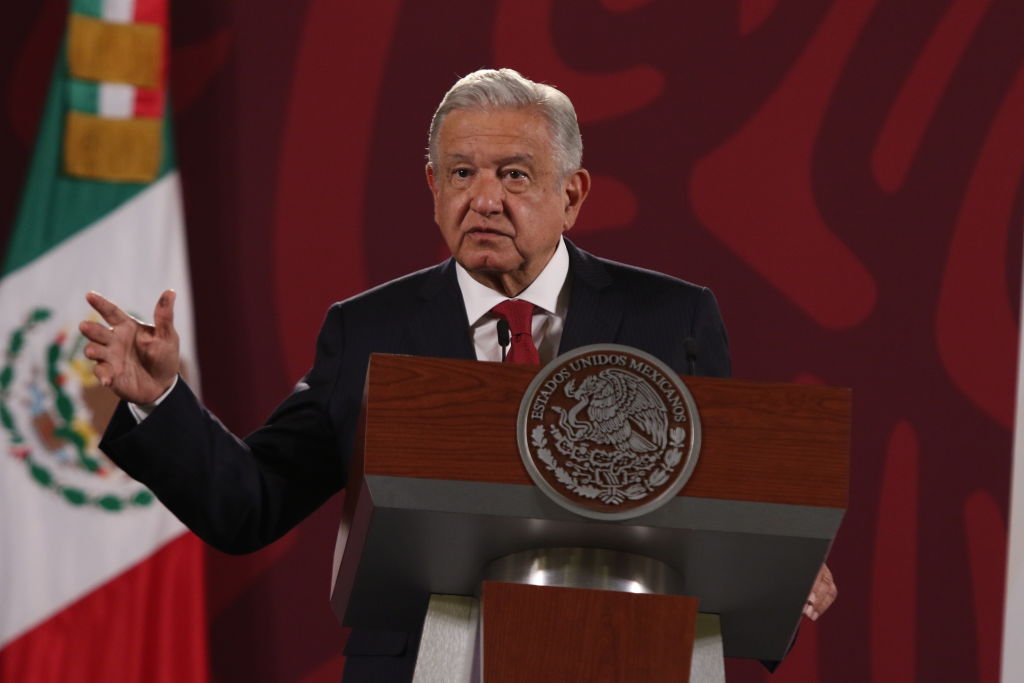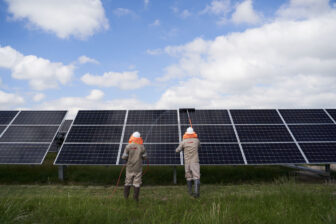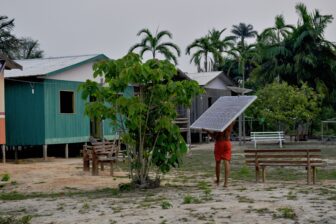Mexican President Andrés Manuel López Obrador suffered one of the most significant defeats of his term yesterday when legislators rejected his proposed overhaul of the country’s electricity sector.
Critics said the changes would have stymied investment and set back renewable energy production. López Obrador, or AMLO as he is widely known, claimed the reforms were necessary to ensure Mexican energy sovereignty.
The constitutional change, which among other things would have given state utility CFE priority over private firms in electricity production, needed a two-thirds majority for passage. The proposal was voted down by 275 votes to 223.
AQ asked several observers to share their reaction.
Ana Lilia Moreno, program coordinator at México Evalúa:
There seems to be a general understanding of the dangers that we have been warning about regarding this reform. Civil society helped sharpen the focus on the actions of opposition legislators. I believe that the question of whether the opposition could unite and express their votes explicitly and vocally finally became reality yesterday.
The coalition that was formed yesterday by the opposition is also very significant in light of the fact that this sum of forces could lead to significant change in 2024. It shows that victory for the president’s party and its allies is not certain.
All told, this is undoubtedly a defeat for López Obrador. Energy is a big part of his agenda, with a clear focus on fossil fuels. The administration has dedicated a lot of its budget to revitalizing Pemex, but it hasn’t been possible. They now tried something similar with the electricity industry. There are still legal questions in the sector – opposition parties have asked the constitutional court for clarification on its position on an earlier reform effort, and we are still waiting for the court to weigh in on other issues.
But for today, López Obrador faces an ideological defeat. Mexico has more legal certainty for investments. We need to learn from this experience so it doesn’t happen again, to avoid such clear risks both to investments and to the health and well-being of Mexicans, the environment, and international agreements on renewable energy production. This decision helped safeguard those rights.
Genaro Lozano, political science professor at Mexico City’s Iberoamerican University and political analyst for Reforma and ForoTv:
The president faced his first legislative defeat to date during his term, while the opposition is showing signs of life for the first time since he took office. AMLO has already achieved his main objectives. What’s to come is more polarization leading up to 2024 elections and a trial by fire for the opposition: Will they be able to come to an agreement to field a single candidate?
Gonzalo Monroy, managing director at GMEC, an energy-focused consultancy in Mexico:
The fact that there were so many congress members in the vote and no abstentions is a clear reflection of the current polarization in Mexico. Negotiating means give and take, and AMLO didn’t want to change anything, he wanted to impose. By March we could see that the president and his allies in Congress didn’t have the votes to pass the reform. The reality is that they could have negotiated and looked for some kind of agreement. But the president and his supporters lied in saying they had incorporated proposals from opposition parties into the reform, and that closed space for negotiation.
While the focus now has been on the electricity market, it’s important to remember that this wasn’t López Obrador’s first effort. If you go back to December 2018, one of his first speeches was about rescuing Pemex. The president had extremely ambitious goals, which I would say were almost out of touch with reality, and it became clear quickly that Pemex was unlikely to meet them: it wasn’t going to raise production significantly, and reserves weren’t growing in a meaningful way.
Plan B was to try and emulate former President Adolfo López Mateos and nationalize the electricity industry. We saw the culmination of that effort yesterday but that didn’t work out either. Now we’re essentially at Plan C, which is the supposed nationalization of lithium. That’s a bit misleading because lithium, like all other minerals and metals in the Mexican subsoil, have belonged to the state since the Constitution of 1917. What it’s really about is trying to achieve something – anything – in this case by reforming the mining law. But this new plan is not creating anything of real value. It’s talking about creating a new state enterprise, but unfortunately we have a lot of experience in Mexico with state enterprises created in this way, born out unstable conditions, and they don’t end up being long-term solutions.
Roxana Muñoz, Associate Vice President Analyst; and Adrian Garza, Vice President-Senior Analyst at Moody’s de Mexico:
The bill submitted to Congress to change three articles of the constitution related to the energy sector was not approved, a positive development for Mexico’s electricity sector. Notwithstanding this, we expect that the López Obrador government will continue to push for changes in the energy sector, maintaining policy uncertainty and undermining private investment, especially in renewable generation.
An electricity law approved in 2021 that prioritizes the Federal Electricity Commission (CFE) for energy generation over private generators was suspended shortly after congressional approval. Recently, however, the Supreme Court did not rule the law unconstitutional, opening new fronts for legal disputes with the private sector. The law aims to strengthen the CFE against existing regulation that favors private generation, particularly variable renewable generation, which under the current criteria dispatches first.
The law, among other potential measures, will exacerbate a slowdown in renewable generation investment. The country held energy auctions in 2015–17, awarding permits for 19.8 terawatt hours of renewable generation, but suspended those auctions when López Obrador became president in late 2018. In the short run, the uncertain policy environment makes less likely any new investments through power-purchasing agreements with private participants outside the energy auction mechanism. Since regulators are not granting permits or approvals, the uncertainty has also delayed or halted projects already in the pipeline. CFE has announced a robust pipeline of generation investment, but 72% of the planned capacity will be nonrenewable, with plans to install 3,384 MW in gas-fired power projects, and just 1,291 MW in renewable energy.






